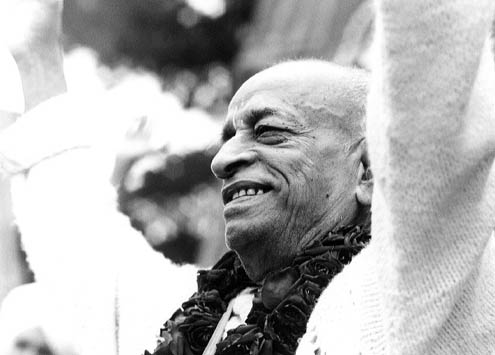(Srila Prabhupada, San Francisco Rathayatra, 1974)
.
"To summarise the conclusions of Bhagavad-gita it may be said that,
1) God is one and everything is in Him and He is in everything.
2) To render transcendental service unto God is to serve everything that be, just like to water the root of the tree is to water the different branches and numerous leaves of the tree or to supply food to the stomach is to vitalize all the senses and the sense organs of the body.
3) The parts are automatically served when the Whole is served but when the parts are served the whole may not be served or not served at all.
4) The parts and the Whole being eternally related, it is the eternal duty of the parts to render service unto the Whole.
5) A recipient of the services of the parts, God's sat-cit-ananda vigraha i.e. the all-attractive Cognizant and all-blissful Personality eternal. He can reveal Himself by His own potency without any help of the external potency called maya in order to be cognizable by the limited potency of the parts and as such He is not only the greatest of all but he is the smallest of all. That is His prerogative.
6) He is better realized when He by His causeless mercy agrees to descend in this mortal world but he He is never realised by the partial speculations of the empiric philosophers however systematic and long-termed it may be.
7) Sri Krishna is the Personality of Godhead and is the Summum Bonum Cause of all Causes proved by fact and figures in the statement of Bhagavad-gita, but He reserves the right of not being exposed to the sensual speculations of the empiric philosophers.
8) One should therefore surrender unto Him if one wants to know Him as He is and that is the real process to approach the Infinite by the infinitesimals.
9) Sri Krishna is easily available by the religion of love i.e. by love and service as conceived by the damsels of Vraja who had practically no education whatsoever and much less any claim for high class birth right.
10) The highest service that can be rendered to the mankind is, therefore, to preach the philosophy and religion of Bhagavad-gita for all the times, all the places and all the people."
.
(Srila Prabhupada letter, Cawnpore, India, July 13, 1947)
.
